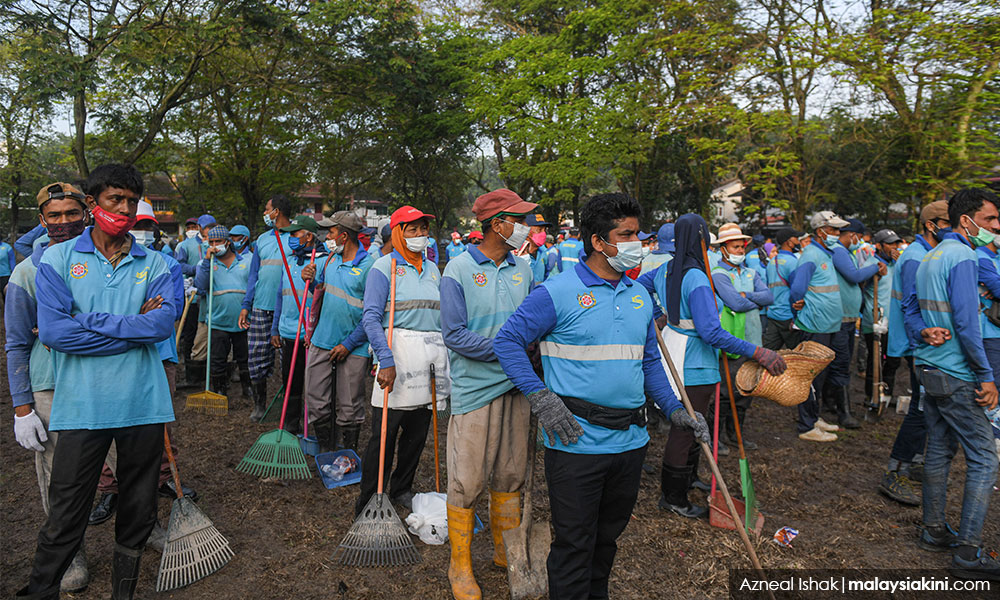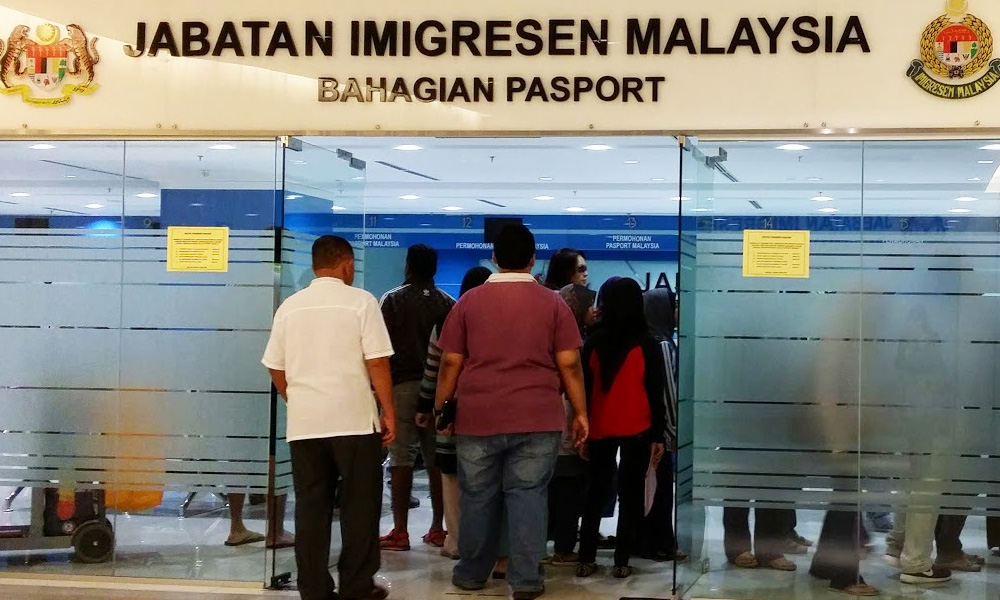LETTER | The facts are distressingly familiar. Workers in Bangladesh are recruited by manpower companies to work in Malaysia.
The workers’ pay the equivalent of between RM 17,000 and RM20,000 each to the recruitment agencies - a huge amount even for local workers. The money is almost invariably borrowed at exorbitant rates of interest.
The workers are given employment contracts with a Malaysian company. They are promised work permits on arrival in Malaysia.
Everything looks legitimate and promising. In any case, having paid the recruitment fee, there is no turning back. The debt clock has already started ticking, adding up interest with each passing minute.
They can’t wait to start work. Farewells said, tears are shed with one last lingering embrace and then they leave their homes and loved ones.
The tears and sadness are softened by the hope of a new and better life for the family, made possible by working in Malaysia.
On arrival, hungry and tired, they are herded like cattle by representatives of the employer or his agent. Their passports are taken away, after which, they are at the mercy of their handlers.
They are taken to a temporary accommodation, cramped, unsanitary, lacking in basic amenities while their jobs are being sorted out.
Days pass, weeks, then months go by but there is no job, little food and often lots of verbal and sometimes physical abuse.
Hope gives way to uncertainty, then despair, while all the time, night and day, the burden of the mounting debts hangs over their heads.

Some run away into the unknown, seeking a better life; after all, things could not be worse elsewhere.
But immediately they fall into the category of PATI (pendatang asing tanpa izin) - illegal immigrants - to be hounded down, detained, imprisoned and legally extorted (euphemistically termed “immigration penalty”) for being in the country without valid documents, in addition to the extra-legal extortions paid if they chance to run into predatory enforcement officers who look upon them as mobile ATMs.
Those who remain “free”, without passport or money, join the pool of cheap labour ready for exploitation, to keep our economy chugging along.
Meanwhile, back in base camp, their colleagues are shunted from one place to another, given jobs that they had not signed up for, not paid their due wages, more run away to seek a better lot and some commit suicide in despair.
Stories such as the above have been appearing in our media with distressing regularity with little reaction from relevant public officials, MPs or their constituents who put them there.
When a public response is made, it merely glosses over the problem, restating a policy position (which obviously is not being implemented) and does not address the root causes of the problem.
Such was the response by the human resources minister to comments made by independent labour rights on Sept 21, reported by The Star.

On Oct 1, another story was posted on social media, seeking urgent action to rescue 60 migrant workers currently living in squalid conditions near a jungle in Jerantut, Pahang.
Meanwhile, at the higher echelons of government, battle cries against human trafficking and forced labour continue to grow louder.
Seminars, symposia, workshops and consultations are held at fancy hotels, with the now almost mandatory presence of a sprinkling of NGOs, to deliberate on the hows and whys of human trafficking and forced labour, speaking in hushed tones of the next Trafficking in Persons Report (TIP) from the US State Department.
Yet basic questions remain unanswered:
How did the employers who signed the employment contracts obtain quota to recruit workers if the employers had no jobs to offer? Due diligence of the prospective employer is a prerequisite for approval of foreign worker quota. Was the due diligence done?
Did anyone override the due diligence report to approve the quotas contrary to the recommendations of the officers who did the due diligence? The answers to these questions should be available in the work records.
What action has been taken to ensure the employers compensate the workers for their monetary losses and hardship suffered? It is not sufficient to impose a penalty on them and raise revenue for government coffers, without doing justice to the workers.
Considering that local authorities cannot legally shrug off any responsibility for the distressing situation that the workers are now in, what measures are being taken to provide them with jobs which are commensurate with the wages and working conditions of the jobs for which they had signed up?
Considering the close working relations between our government and the government of Bangladesh, especially with regard to the recruitment of workers from Bangladesh, would it not be possible to find how the huge recruitment fees paid by the workers (at least five times above the officially approved amount) have been distributed. Do the beneficiaries include people in Malaysia or their proxies elsewhere?
What has been the role of the Foreign Workers Centralized Management System (FWCMS) in this dubious recruitment exercise? How much of the recruitment fees paid by each of these workers have gone to the coffers of the company controlling FWCMS?
What corrective and preventative measures are being put in place to remediate and prevent the recurrence of the same problem?
Until and unless these questions are answered transparently, and appropriate action is taken accordingly, Malaysia will continue to be complicit in human trafficking and forced labour crimes.
The views expressed here are those of the author/contributor and do not necessarily represent the views of Malaysiakini.

